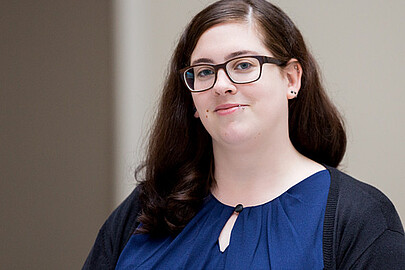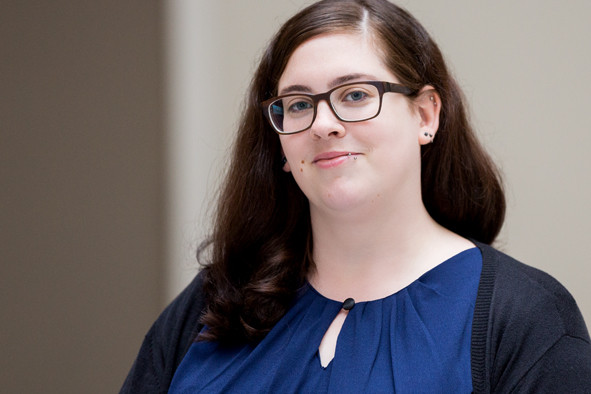If you are pregnant, please contact:
or 0511-762 5750
Pregnant and breastfeeding students are under special protection. The Maternity Protection Act (Mutterschutzgesetz MuSchG) regulates maternity protection periods for students, the risk assessments and any necessary protective measures.
If you are pregnant, you will certainly have some questions. The Equal Opportunities Office is the first contact to report a pregnancy.
The Maternity Protection Act (Mutterschutzgesetz, MuSchG) also applies to female students. The law is intended to protect expectant mothers and their children as well as nursing mothers from hazards, excessive demands and damage to health.
The study conditions to which a pregnant or breastfeeding student or their child is exposed are assessed and hazards are evaluated. This includes, for example, contact with hazardous substances, special physical demands or overtime and night work. Based on this risk assessment, any necessary protective measures are determined and implemented. This means, for example: If a laboratory internship has to be completed, it must either be completed after the birth and, if applicable, breastfeeding period, or the pregnant student is involved in group work, for example, in which they only complete written work outside the laboratory. For your information: Most courses at LUH do not involve any risks or hazards for pregnant or breastfeeding students.
The protection periods for the pregnant student are six weeks before and eight weeks after the birth. The pregnant student may decide whether they wish to take advantage of the protection periods. If they take advantage of the protection periods, they are exempt from courses, examinations and laboratories during this time. The credits must then be made up or fulfilled with alternative formats.
If you are pregnant and would like to take advantage of the maternity protection periods, it is usually sufficient to inform your professors. If examinations are scheduled during your protection periods, you should report the maternity protection periods to the Examinations Office and plan with the teaching staff how these can be made up. In the case of final theses, you should always report your protection periods to the Examinations Office, as the submission period will be extended and you will be given a new deadline.
The examination regulations usually allow family-friendly exceptions for pregnant students and students with family responsibilities such as caring for a child or relatives (see in particular §16 of the examination regulations). Please contact your examination board or dean of studies for information on the regulations at your faculty.
If examinations fall within the protection periods, the pregnant student must clarify with their teachers, lecturers, the examination board and, if applicable, the Academic Examinations Office, whether there is the possibility of a substitute performance and, if so, what kind. In the case of final theses, you should in any case report your protection periods to the Academic Examinations Office, as the submission period will be extended and you will be given a new submission date.
Students can take a leave of absence for up to 6 consecutive semesters during pregnancy and when raising a child. An application for leave of absence must be submitted to the Enrolment Office every semester. You can find the application form and further information here: Leave of absence/ semester off at LUH.
Students may be excused from mandatory courses for medical check-ups and breastfeeding (§7 MuSchG).
Many institutes and facilities provide special rooms for pregnant and breastfeeding students and parents to help them better reconcile work/study and family life. At Leibniz Universität there are breastfeeding and recovery areas, study and recreation rooms and parent-child offices. You can find an overview here: Parent-child rooms and offices.
BAföG funding can be extended beyond the maximum funding period due to pregnancy or raising one or more children. This grant does not then have to be repaid. Allowances for children are granted when calculating BAföG and repayment. Student parents who receive BAföG can apply for a childcare allowance. If a student is prevented from completing her studies due to pregnancy, educational support is provided for up to three months. However, if the interruption lasts longer, the BAföG for this semester must usually be repaid. Students with children who receive BAföG are also entitled to various benefits from the job centre. These include additional needs for pregnant women, initial equipment for the child and an allowance for maternity clothing.
Further information:
For the interruptions in work during the maternity protection periods (6 weeks before and 8 weeks after childbirth), employees can receive compensation benefits.
Low-income employees who are themselves members of a statutory health insurance fund (e.g. students) and who are not paid during the protection periods receive maternity benefits of up to 13 euros per day from their health insurance fund (plus an allowance from the employer, if applicable). Low-income workers who are not themselves members of a statutory health insurance fund receive maternity benefit totalling 210 euros from the Federal Insurance Office.
The maternity allowance must be paid to the health insurance fund or the Federal Insurance Office or the Federal Insurance Office. To do so, you need a certificate from your doctor or midwife stating the expected date of delivery.
Counseling and support services for pregnant students and students with children:

